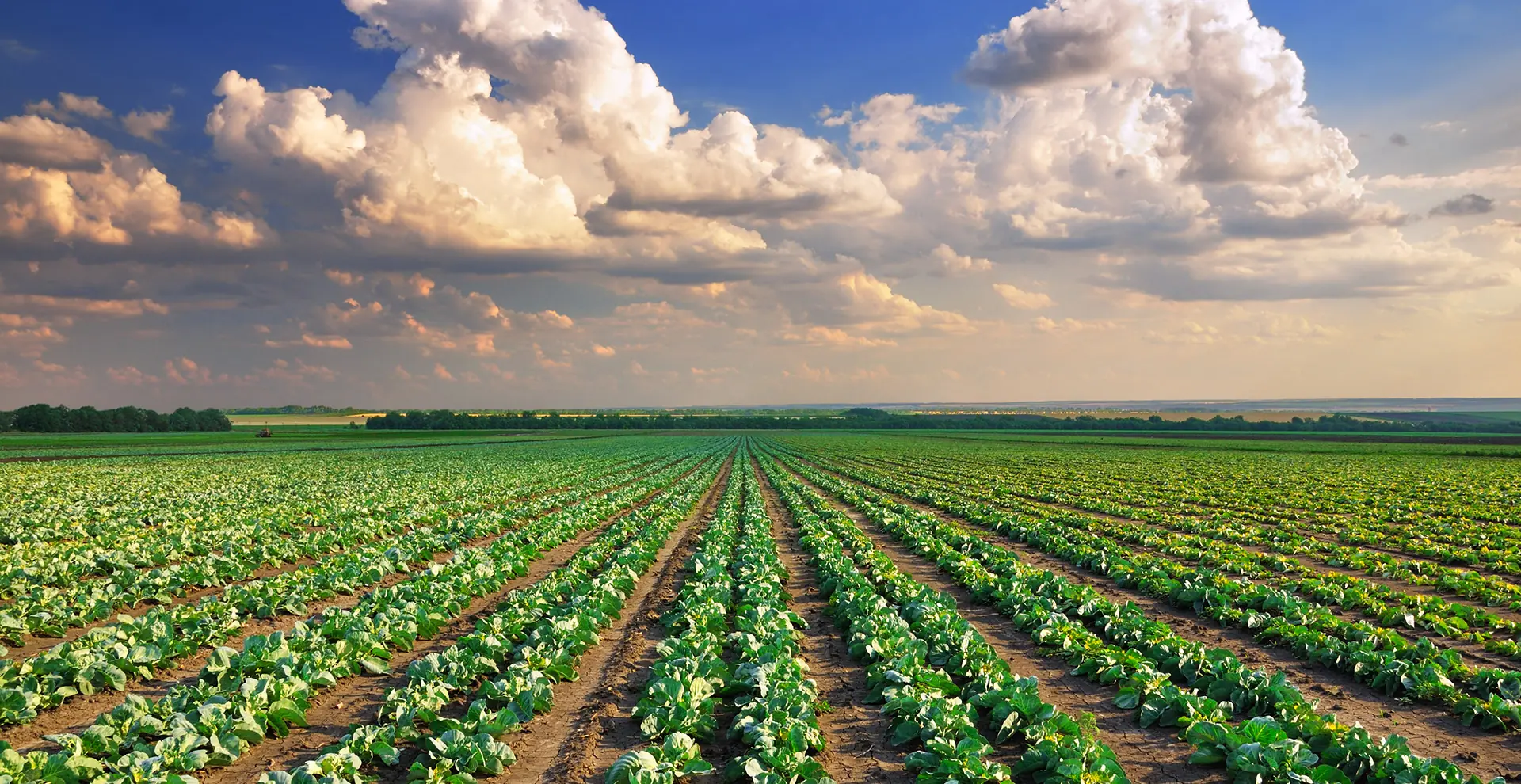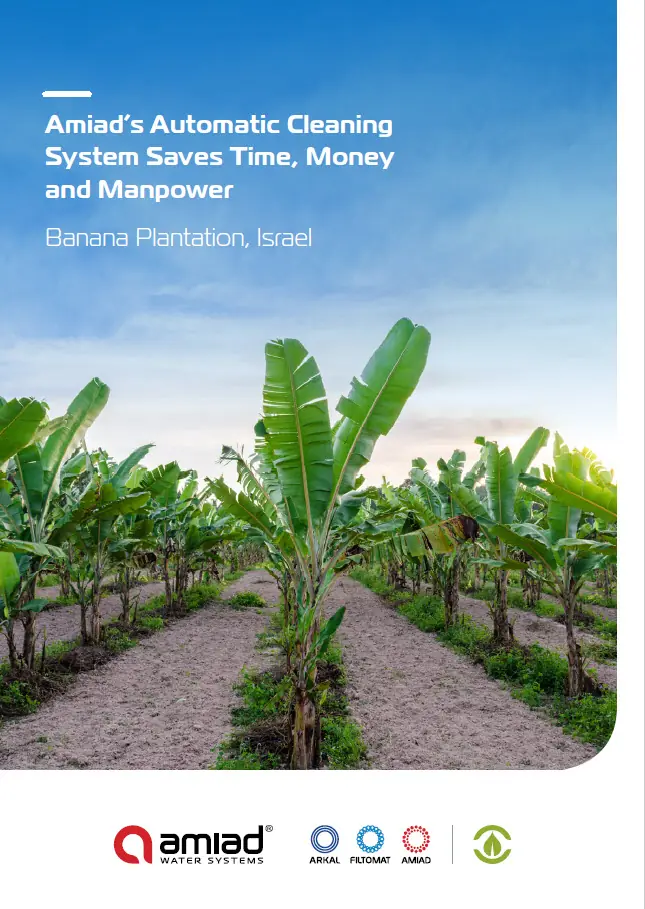
Water is a precious resource that plays a vital role in agricultural practices. Farmers and growers rely on irrigation to provide their crops with the necessary hydration for healthy growth and abundant yields. However, the quality of the water used for irrigation is as equally important as the quantity for overall agricultural productivity. To address this concern, irrigation water filters have emerged as essential tools in ensuring the delivery of clean, filtered water to crops. In this article, we will delve into the science behind irrigation water filters, exploring how they effectively remove contaminants / clogging factors and improve water quality, ultimately contributing to the success and sustainability of agricultural operations.
Understanding Water Sources and Quality
Before exploring the mechanics of irrigation water filters, it is crucial to comprehend the various contaminants / clogging factors that can be present in irrigation water. These contaminants can originate from diverse sources, such as surface water, groundwater, and municipal water supply. Understanding their nature and potential impact is fundamental in selecting the appropriate filtration methods.
- Sediments and Suspended Particles: Sediments like sand, silt, clay, and organic matter can be present in irrigation water, leading to clogged emitters, pipelines, and nozzles. These particles can obstruct the flow and hinder the uniform distribution of the irrigation water, fertilizer, and moisture across the fields, adversely affecting crop growth.
- Organic Matter and Microorganisms: Organic matter, such as decaying plants and algae, can introduce unwanted substances and create favorable conditions for the growth of microorganisms. Harmful bacteria, viruses, and fungi can thrive in irrigation water, posing significant risks to crop health.
- Chemicals and Dissolved Minerals: Chemical contaminants and dissolved minerals can find their way into irrigation water through various pathways. Pesticides, herbicides, fertilizers, and industrial pollutants may leach into water sources, leading to potential damage to crops and a reduction of the planned yield. Excessive levels of dissolved minerals, such as calcium, magnesium, and iron, can result in the formation of mineral deposits, clogging irrigation systems and reducing water flow.
By understanding the different types of contaminants / clogging factors and their sources, farmers and irrigation system operators can take informed steps towards implementing effective filtration solutions that cater to their specific needs. In the following sections, we will explore how irrigation water filters work to enhance water quality in agricultural settings.
How Irrigation Water Filters Work
Irrigation water filters employ various technologies to remove contaminants / clogging factors and improve the quality of water used for irrigation. The choice of filter type depends on the nature and concentration of contaminants / clogging factors, flow rate, water pressure and the specific requirements of the irrigation system. Let’s take a closer look at some of the common filtration processes and filter types used in irrigation:
- Screen Filtration/Straining: Straining is the simplest and most basic form of filtration. It involves passing water through a filter medium with small openings or pores, which physically trap larger particles and sediments. These filters consist of a mesh screen, typically made of stainless steel or synthetic materials, that retains particles above a certain size, allowing clean water to pass through.
- Depth Filtration – Disc Filtration: A series of discs are stacked and compressed on a spine, producing a matrix of consecutive crossing points which trap the particles, thus creating a depth filtration element.
- Depth Filtration – Media Filtration: Media filters, such as sand filters, utilize adsorption as a filtration mechanism. In these filters, water flows through a bed of granular media, such as crushed basalt or sand, clogging factors are trapped or adhere to the surface of the media particles, allowing the clean water to pass through.
- Hydrocyclone Filtration: The hydrocyclone process allows heavier particles to settle down to the bottom of a filter chamber due to gravity. This method is employed in centrifugal filters, which use centrifugal force to separate mainly sand from water. As water enters the filter, it is swirled in a circular motion, causing the heavier particles to settle at the periphery and allowing the clean water to exit through the center.
Key Components of Irrigation Water Filters
Irrigation water filters consist of several key components that work together to effectively protect irrigation emitters. These components may vary depending on the filter type, but some common elements include:
- Filter Housing and Screens: The filter housing encloses the filtration system and provides structural support. It is designed to withstand water pressure and ensure proper functioning of the filter. The filter element or filter media within the housing play a crucial role in capturing and retaining contaminants during the filtration process.
- Filter Media and Filter Elements: The filter media or filter elements are the core components responsible for the proper and optimal filtration process. They can be made of various materials specified for excellent chemical resistance and mechanical strength, such as stainless steel, polyamide, polypropylene polyethylene or polyester, depending on the filtration requirements and technology. Choosing the correct filter element should be considered with the manufacture of the irrigation emitters.
- Backwashing and Cleaning Mechanisms: Over time, the filter media can become clogged with trapped contaminants, affecting filtration efficiency. To address this, irrigation water filters are equipped with backwashing and cleaning mechanisms. Backwashing involves reversing the flow of water through the filter, dislodging and removing accumulated contaminants. The filters may also incorporate automatic, semi-automatic or manual cleaning systems for maintenance and filter flushing.
- Control Systems and Monitoring: Advanced irrigation water filters may feature control systems and monitoring devices. These systems enable operators to monitor filter performance, pressure differentials, flow rates, and other parameters. Real-time monitoring helps in maintaining optimal filtration conditions and alerts operators when maintenance or cleaning is required.
Understanding the working principles and components of irrigation water filters provides a solid foundation for selecting the most appropriate filtration system for specific irrigation needs. In the next section, we will explore the benefits of using irrigation water filters and how they contribute to improved crop health and productivity.
Benefits of Using Irrigation Water Filters
Implementing irrigation water filters offers numerous advantages to farmers and growers, enhancing water quality and promoting healthier crop growth. Here are some key benefits of using irrigation water filters:
- Improved Water Quality: Perhaps the most significant benefit of using irrigation water filters is the improvement in water quality. By effectively removing sediments, organic matter and microorganisms, filters ensure that clean and safe water is delivered to crops. This, in turn, minimizes the risk of crop damage, plant diseases, and contamination of produce.
- Enhanced Crop Health and Productivity: Clean water free from contaminants is essential for optimal crop health and productivity. Irrigation water filters help prevent clogging of irrigation systems, ensuring uniform water distribution to plants. This promotes better nutrient uptake, reduces stress on crops, and improves overall plant vigor and yield potential.
- Protection of Irrigation Equipment: Contaminants present in irrigation water can cause damage to irrigation equipment, leading to maintenance issues and reduced operational efficiency. By removing sediments and other particles, filters prevent the accumulation of debris in pipes, valves, and emitters, prolonging the lifespan of the irrigation system and reducing the need for repairs or replacements.
- Prevention of Clogging and Blockages: Sediments and organic matter present in water can cause blockages and clogging in irrigation components, obstructing water flow and reducing irrigation efficiency. Irrigation water filters play a vital role in preventing such issues by capturing and removing these particles, ensuring uninterrupted water flow and reducing the need for frequent system flushing or maintenance.
Factors to Consider When Choosing Irrigation Water Filters to Protect Emitters
When selecting agricultural irrigation water filters, several factors should be taken into consideration to ensure the right filter system is chosen for specific agricultural needs. Here are some key factors to consider:
- Water Quality Analysis: Conducting a thorough analysis of the water source and identifying the types and concentrations of clogging factors present is crucial. This analysis helps determine the appropriate filter type, size, and filtration capacity needed to effectively remove the specific contaminants.
- Flow Rate / Working Pressure and Filtration Capacity: The flow rate required for the irrigation system and the filtration capacity of the filter should be matched. It is essential to choose a filter that can handle the desired flow rate / working pressure without compromising filtration efficiency. Undersized filters can lead to inadequate filtration or excessive pressure drop, impacting overall system performance.
- Maintenance Requirements and Costs: Consider the maintenance requirements of the filter system, including cleaning, backwashing, and replacement of filter media or filter elements. Assess the associated costs and ensure that the maintenance procedures align with available resources and manpower.
- Compatibility with the Irrigation System: Compatibility between the filter system and the existing irrigation infrastructure is crucial. Consider factors such as the filter’s installation requirements, connection points, and compatibility with other system components to ensure seamless integration and optimal performance.
By carefully evaluating these factors, farmers and irrigation system operators can make informed decisions when selecting irrigation water filters, ensuring efficient filtration and improved water quality for their crops.
Amiad Irrigation Filtration Solutions
Amiad, a leading provider of irrigation filtration solutions, offers a wide range of innovative and reliable irrigation water filters. Our expertise in filtration technology ensures that farmers and growers can find the perfect solution to meet their specific needs. With a focus on high-quality materials, advanced filter designs, and efficient filtration processes, Amiad irrigation filters deliver exceptional performance, enhancing water quality and optimizing crop growth.
Conclusion
Irrigation water filters play a vital role in ensuring the delivery of clean and contaminant-free water to crops, thereby contributing to the success and sustainability of agricultural operations. By understanding the types of contaminants present in irrigation water and the mechanisms by which filters remove them, farmers and growers can make informed decisions in selecting the most suitable filtration systems for their specific needs.
The benefits of using irrigation water filters are numerous. Improved water quality leads to healthier crop growth and increased productivity. By removing sediments, organic matter, microorganisms, and chemical contaminants, filters protect irrigation equipment from damage and prevent clogging and blockages, ensuring efficient water distribution across fields.
Want to learn more about irrigation filtration?





